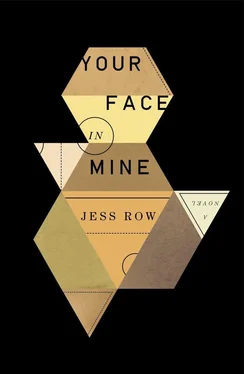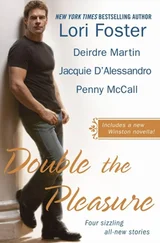Kelly, Mort says, is it all right if I cut the bullshit for a moment?
Please.
I just want to give you a little feedback on how things are going. Now that it’s been a month. I — we — look, we’re concerned about the level of inclusivity. We feel, some people feel, that you’re not taking the committee structure seriously.
Would you like me to respond honestly? I ask. He nods. Mort, I say, I don’t. I can’t. And then I do something I’ve promised myself not to do, in fact to avoid at any cost: I open my top drawer, the locked drawer, and take out a green folder, an as-now-empty folder with the words Station Audit in the little plastic window.
Last month we received our disaffiliation papers from NPR. As of December first, they’re cutting us off. Chronic nonpayment or late payment of annual fees. Decline in listenership across the brackets. Weakness in local programming. That’s what they said. It’s all itemized. We’re going to have an all-staff meeting next week and I’ll give the full presentation.
He’s been following me, squinting, mouthing the words.
I knew it, he says. You’re one of those fucking turnaround artists. You’re Neutron Jack. Look, am I fired? Just tell me now.
Of course you’re not fired. You’re promoted.
To what?
Director of outreach.
No more committees? None of them?
Network policy is that we have to have a standard governance structure.
Do you have any idea what you’re doing? he says. You’re from here, right? Didn’t you ever listen to BCC at all, as a person ?
I listened to my own music. I was just a kid. Never turned on the radio.
Yeah, he says, addressing the ceiling, that’s just like them. Bring in a PD who’s never turned on the radio.
He looks at me with pure, piggish hatred, and I have the words right on my tongue, prepared, a whole speech: Make me the scapegoat, make me the bad guy. Shoot the messenger. Just do the right thing and decide to keep your station, all right? I’ve been practicing in the shower, behind the wheel, for weeks, ever since I received my copy of the report. No station should be allowed to die, not even the little ones, the redundant ones, with two hours of bluegrass during the afternoon rush before the news comes on. It’s a community station; it’s the principle of the thing; it’s a public resource, never mind if point-five percent of the public is ever listening. It’s salvageable. There are good people here. I look through my partition window at Barbara, her silver hair wound up in a long nested braid: a maniacally effective accountant, a chain smoker, a lover of Mel Tormé and Bobby Darin. I look back at Mort, and the words turn to sawdust in my mouth.
We’ll talk more later, I say. Take a deep breath.
What, he says, turning around in the doorway, so that Barbara and half the office can hear, is BCC too big to fail?
—
The Baltimore I know runs on a north-south axis along three parallel streets, Charles, Calvert, and St. Paul. Beginning at the city line, the anonymous ranch-house suburbs of Towson give way to the ring of neighborhoods where I lived out my adolescence: Mount Washington, Roland Park, Homeland. There is the bizarre Art Deco cathedral of Mary Our Queen and the Masons’ Boumi Temple and the enormous empty St. Mary’s Seminary, and then farther down the anonymous, faceless stone and brick mansions of Guilford, then the Johns Hopkins main campus, cut off from the streets by a forested median on St. Paul Street and the lacrosse stadium on University Parkway. Until this point the city is really not a city so much as an agglomeration of villages, leafy, prosperous-seeming, and carefully composed. At 33rd Street, which leads east only a few blocks to Memorial Stadium, Baltimore proper begins, first as a long corridor of row houses broken by large avenues, then the canyon formed by Interstate 83 as it cuts southeast just below Penn Station; below that, Mount Royal, clustered around the Washington memorial obelisk, and finally the gleaming steel-and-glass bank buildings just before the Inner Harbor and its shopping arcades and Camden Yards, the new baseball stadium, which to me still looks like an architect’s drawing or a hologram.
I moved here when I was twelve and left for college at eighteen, and when college was over there was China, and Wendy, and then graduate school, and Meimei, and WBUR, and in the space of fifteen years I came back only five or six times, each time only when I couldn’t possibly avoid it. I did everything I could not to come home for longer than a week; and then finally — just before I married Wendy — my parents retired and moved to New Paltz, and I thought, briefly, that I would never have to see the city again.
Not because I hated Baltimore, not at all, but because, as one of my friends put it, it was a place to be from , not a place to belong to . When I arrived at Amherst I realized within five minutes that it was pointless to try to explain to a girl from Rye, New Hampshire, what it meant to go to an illegal warehouse show on North Avenue, or why it mattered that my sweater came from Don’s Discount in Fell’s Point, or why I had a collection of Polish saint cards taped to my wall, since I wasn’t even Catholic. I felt, for the first time, provincial. Everyone had a hometown, a story, a past, and it could matter if you wanted it to — if, for example, you lived at 88th and Park Avenue, and your father was the director of the Guggenheim — or not, and I chose, as nearly all of us chose, not. I wanted to be denatured, detached, to luxuriate in my cocoon and emerge an utterly different butterfly. Everyone I knew from home had done the same. To be fair, we weren’t exactly locals, to begin with: mostly our parents were academics, teachers, lawyers, scientists, who’d made a life here more or less arbitrarily; whose concerns were global, and who viewed Baltimore and its problems with generic concern, not civic pride. When I saw my friends at Thanksgivings and Christmases it was as if years, not months, had passed, and we stayed mostly in one another’s houses, as if the city might not want to take us back.
By then I’d lost touch with Martin completely. I last saw him, I’m remembering now, on February 12, 1993, the day of Alan’s funeral, and that was the first time in months — the band had broken up, and he had all but disappeared, barely even coming to school. I assumed that his life had gone on, as all of our lives did; I assumed he’d disappeared into this new and large and atomized world. It never occurred to me that he might have stayed in Baltimore.
—
I met somebody, I tell Wendy, in the car, on Charles Street, coasting through one green light after another. An old friend.
How old?
High school. He’s changed, though. I wouldn’t have recognized him.
That always happens.
No, I’m about to say, you don’t understand, but I stop myself.
Anyway, what was he like back in the old days?
That’s the problem. I don’t really remember.
What do you mean, you don’t remember ?
I mean he wasn’t that memorable, honestly. I mean, individually. We were in a band together, we played music together. And we hung out. But everyone hung out.
Hung out, she says. I’ve always hated that expression. It reminds me of laundry.
It’s a bad habit, probably, talking to your dead wife, but I do it without thinking, as unconsciously as talking to myself. And perhaps it really is just talking to myself. The Wendy of my imagination is more voluble than the real Wendy ever was, more inclined to keep the conversation going. But she is still there. It sounds absurd, but there is another voice, another presence; it answers me, I don’t tell it what to say. You could call it my unconscious, but if that’s the case, my unconscious is much more capacious than I ever thought it could be. And it speaks better Chinese.
Читать дальше












